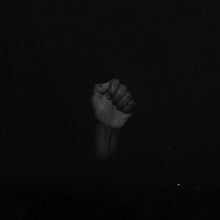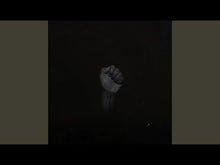Sault - Untitled (Black Is) 2xLP (Forever Living Originals, 2020)
Untitled (Rise), the second of two beautifully crafted albums released by UK outfit SAULT this year, closes with a song for the children. Like Simone’s work, “Little Boy” holds space for light and dark. A frank warning about the “boys in blue” pivots gracefully to divine affirmations: “Heaven’s angels, shining down on us/They won’t go away, God has chosen us,” before the song ends abruptly, on an unresolved note. 2020 is not 1969, and though “Little Boy” contains more sadness than Simone’s song, it champions that same sense of resilience, one forged in a powerful sense of self and unafraid of struggle. It’s a moving finale to a pair of albums that mirror the external and internal tumult of a year marked by global protests for racial justice. Untitled (Black Is) and Untitled (Rise) are protest music and much more: They are music for the sense of loss that persists when the chants begin to waver and the crowds disperse. They are simultaneously a reprieve and healthy kindling for the fire that rages on in those who don’t have the privilege of turning it off. They are combative, introspective, affirming, and heartbreaking. They are a portrait of Black pain and joy in all its complexities, and in their refusal to flatten Blackness, they are rehabilitative...
Untitled (Black Is) arrived, fittingly, on Juneteenth, just 25 days after the killing of George Floyd. If the timing wasn’t clear enough, the album’s sharp refrains, spoken-word interludes, and deliberate use of repetition make its intentions clear. Echoing the best of Solange’s A Seat at the Table, Black Is is shaped by gorgeous melodies and unequivocal messaging. The haunting shouts of children in “Stop Dem” ring long after the rest of the song has fallen away, a forceful reminder that selective listening is not an option. This call to action is repurposed throughout the album’s first half in several related yet distinct styles along the continuum of Black music, mimicking the chameleonic flair of veteran session musicians. Prominent drum kits and bass guitar exude the warmth and fullness of a live band as the group cycles through the West African bounce of “Don’t Shoot Guns Down” and the soulful whimpers of “Why We Cry Why We Die.” Black Is draws heavily from Black religious traditions, from the spiritual quality of the stunning “Hard Life” to the synthy gospel of “Eternal Life,” which feels like beaming straight up to heaven. On the gentle and contemplative “Sorry Ain’t Enough,” the group turns inwards, confronting the challenges that can arise within a movement: “Can you forgive your people?/They’re just hurting inside/If you look in the mirror/You will see it’s just pride.”
As Black Is shifts through different moods, it never loses focus. “Bow,” featuring Michael Kiwanuka, brings a mid-album injection of vim via Afrobeat-inspired rhythms and soukous guitar licks as it advocates insistently for pan-Africanism and international solidarity. The lo-fi intimacy of “Black,” the closest the album gets to hip-hop, succeeds in finding a perfectly imperfect loop around its titular thesis statement. The swinging oohs of “Miracles” introduce the album’s soft landing, marking a clear distinction from the urgent militancy of the opening. Like a collective exhale, the record’s final moments are loving and calming. At 20 songs, Black Is is ill-suited for short attention spans but therein lies its strength: It passionately considers the entirety of the Black experience in this moment." - Jessica Kariisa (Pitchfork)



